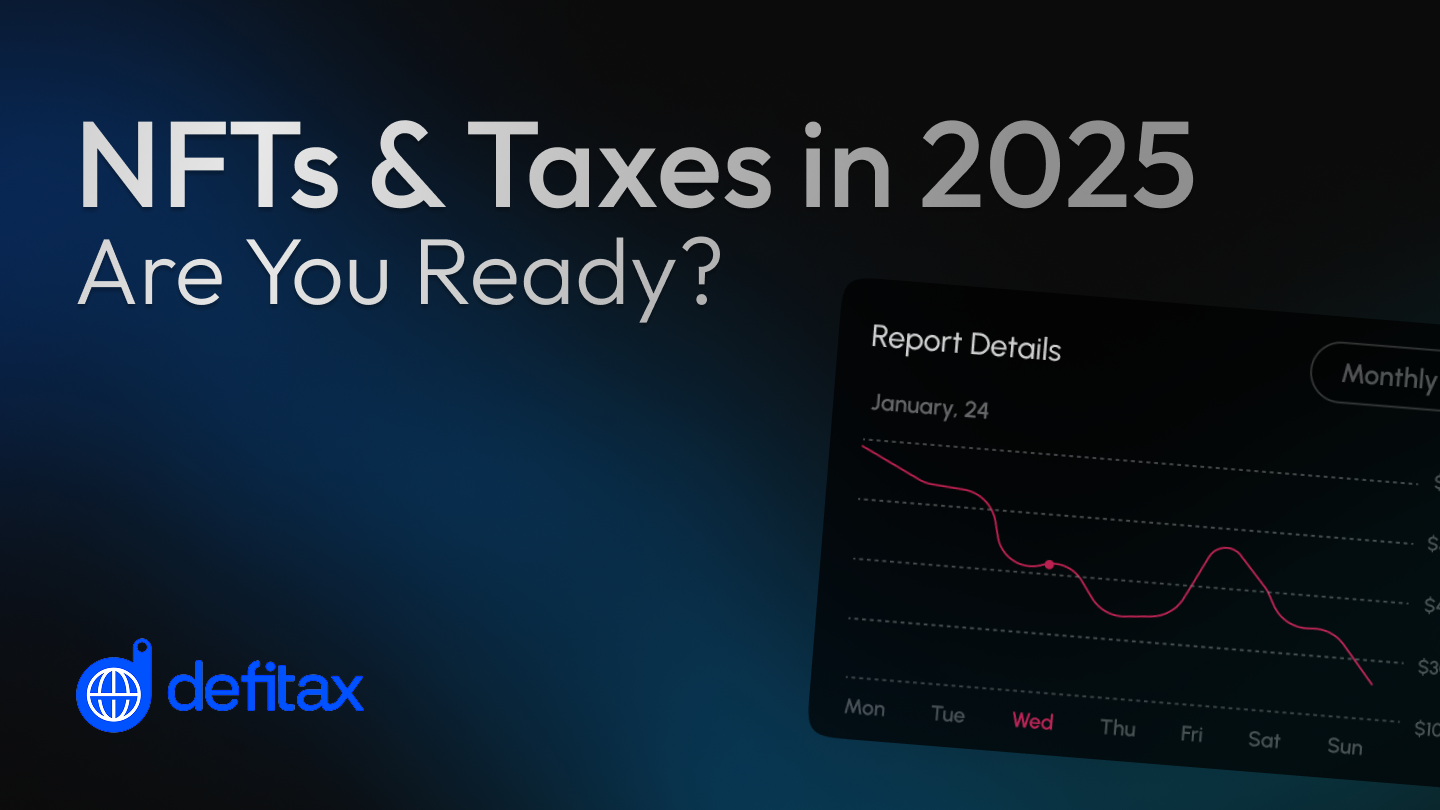
The IRS is tightening regulations on NFTs, making tax compliance essential for artists, collectors, and brokers alike. Ignoring transaction tracking, miscalculating gains, or submitting incomplete reports can lead to audits and penalties. Whether you're a casual hobbyist or a full-time trader, understanding NFT tax strategies helps you stay compliant and minimize liabilities.
Here’s what you need to know about NFT taxation in 2025 and how DeFi Tax can help you stay on the right side of the law.
NFTs fall under capital asset classification, similar to stocks and cryptocurrencies. As a result, they are subject to capital gains taxes. Below are key taxable events that every NFT holder must report.
When an NFT is sold for cryptocurrency (ETH, SOL, BTC) or fiat currency, the IRS treats it as a taxable event. The amount of tax owed depends on the profit made, determined by the NFT’s fair market value at the time of sale.
Swapping one NFT for another does not avoid taxes. Even without traditional currency, the IRS requires traders to calculate gains and losses based on the fair market value of both NFTs at the time of exchange.
Artists and creators earning royalties from NFT resales must report these earnings as taxable income. Depending on the structure, the IRS may classify them as ordinary income rather than capital gains.
Receiving an NFT through a giveaway, promotional event, or reward program can count as taxable income. The IRS mandates that recipients report the NFT’s fair market value when received.

Like traditional investments, NFTs fall under capital gains taxation with two main categories:
Selling an NFT at a loss can offset capital gains or reduce taxable income by up to $3,000 per year. Accurate record-keeping prevents issues during audits and ensures correct reporting.
The rapid expansion of the NFT market has led to increased IRS scrutiny. Recent changes include:

With these changes, NFT investors must take a proactive approach by tracking trades and categorizing tax obligations correctly.
Staying compliant with NFT tax laws can feel overwhelming. DeFi Tax simplifies the process by automating calculations, tracking transactions, and generating audit-ready reports.
✅ Automated Transaction Tracking: Instantly categorizes NFT sales, purchases, and trades across multiple wallets and platforms.
✅ Cost Basis & Fair Market Value Calculation: Ensures accurate NFT valuation aligned with IRS standards.
✅ Audit-Ready Reports: Generates Form 8949 and other tax documents to streamline filing.
✅ Real-Time IRS Compliance Updates: Keeps you ahead of regulatory changes with up-to-date tax solutions.
Navigating NFT taxes doesn’t have to be complicated. DeFi Tax eliminates guesswork, ensures compliance, and helps you file with confidence.
🛡️ Don’t let NFT tax rules catch you off guard.